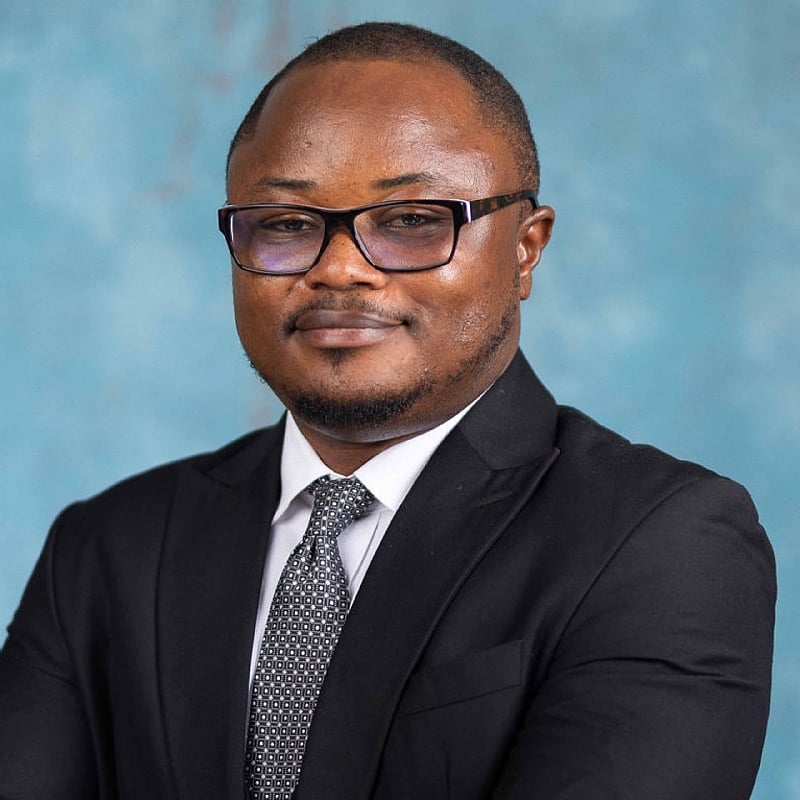In a recent discussion surrounding Ghana’s political landscape, Akwasi Lawyer Kwakye Serbeh, the Convener of the “Victory for Bawumia” campaign, issued a stark rebuke of the National Democratic Congress (NDC). Serbeh labeled the party as visionless, alleging that it tends to adopt policies originally proposed by other parties rather than devise its own innovative solutions. He referenced the Free Senior High School (SHS) policy established under the New Patriotic Party (NPP) government as a prime example, which the NDC, led by former President John Mahama, initially dismissed as unfeasible. Serbeh argued that Mahama’s sudden embrace of the Free SHS initiative after its implementation by the NPP showcases a lack of originality within the NDC. He highlighted Mahama’s contradictory stance regarding investment in education, questioning the former president’s authenticity and commitment to progressive policies.
Serbeh’s critique extended to a broader warning about the dangers of electing Mahama again, suggesting that his leadership signifies a mindset fixated on limitations rather than possibilities. He urged Ghanaians not to fall into the trap of restoring Mahama to power, asserting that such a choice would lead to national regret due to his perceived incompetence. With the upcoming elections rapidly approaching, Serbeh positioned Dr. Bawumia as a leader capable of inspiring change and progress, encouraging voters to trust his vision for the future of Ghana. The Convener emphasized Bawumia’s commitment to education and technological advancement, promising that if elected, every student who completes school would receive a laptop, thereby fostering an environment of knowledge and intellectual growth.
In contrasting the visions of the two candidates, Serbeh critiqued Mahama’s focus on immediate material promises, like food and ice cream, suggesting that such pledges lack depth in addressing the underlying challenges faced by the youth. He highlighted the importance of a forward-thinking approach in politics, one that goes beyond mere subsistence and seeks to empower future generations through education and innovation. Serbeh’s comments revealed a perception that voters who prioritize immediate needs, such as hunger, are limited in their aspirations compared to those who focus on long-term goals for their children’s education and prospects.
Serbeh shared these thoughts during a media interview while rallying support for Bawumia’s presidency. His remarks coincided with a campaign float through the main streets of Kumasi, organized by the youth wing and beneficiaries of the Free SHS program. This grassroots event aimed to galvanize encouragement for Bawumia, underscoring the importance of young voices in shaping Ghana’s political future. Key figures at the event, including Miracles Aboagye and Kwabena Asamoah, emphasized the need for educational policies that empower rather than merely alleviate short-term challenges.
The collective advocacy from various youth representatives outlined a shared vision for Ghana’s educational future, contrasting sharply with the previous administration’s approach. By promoting Bawumia’s vision for the nation, they sought to inspire a movement grounded in empowerment through knowledge rather than dependence on short-lived promises. The campaign contributors echoed Serbeh’s sentiments, advocating for sustainability and innovation in policymaking to ensure that the future of Ghana remains bright and hopeful.
In summary, Serbeh’s vigorous endorsement of Dr. Bawumia and his admonitions against the NDC underscore a polarized political environment leading up to the elections. His arguments reflect a broader narrative that prioritizes education and future-oriented policies over reactive, immediate solutions. Ghanaians are thus encouraged to deliberate on their choices, contemplating the long-term implications of their votes, especially concerning educational reforms. The dialogue surrounding these themes reveals vital discussions within Ghanaian society as constituents weigh the potential of their leaders to drive meaningful change in the country’s trajectory.


